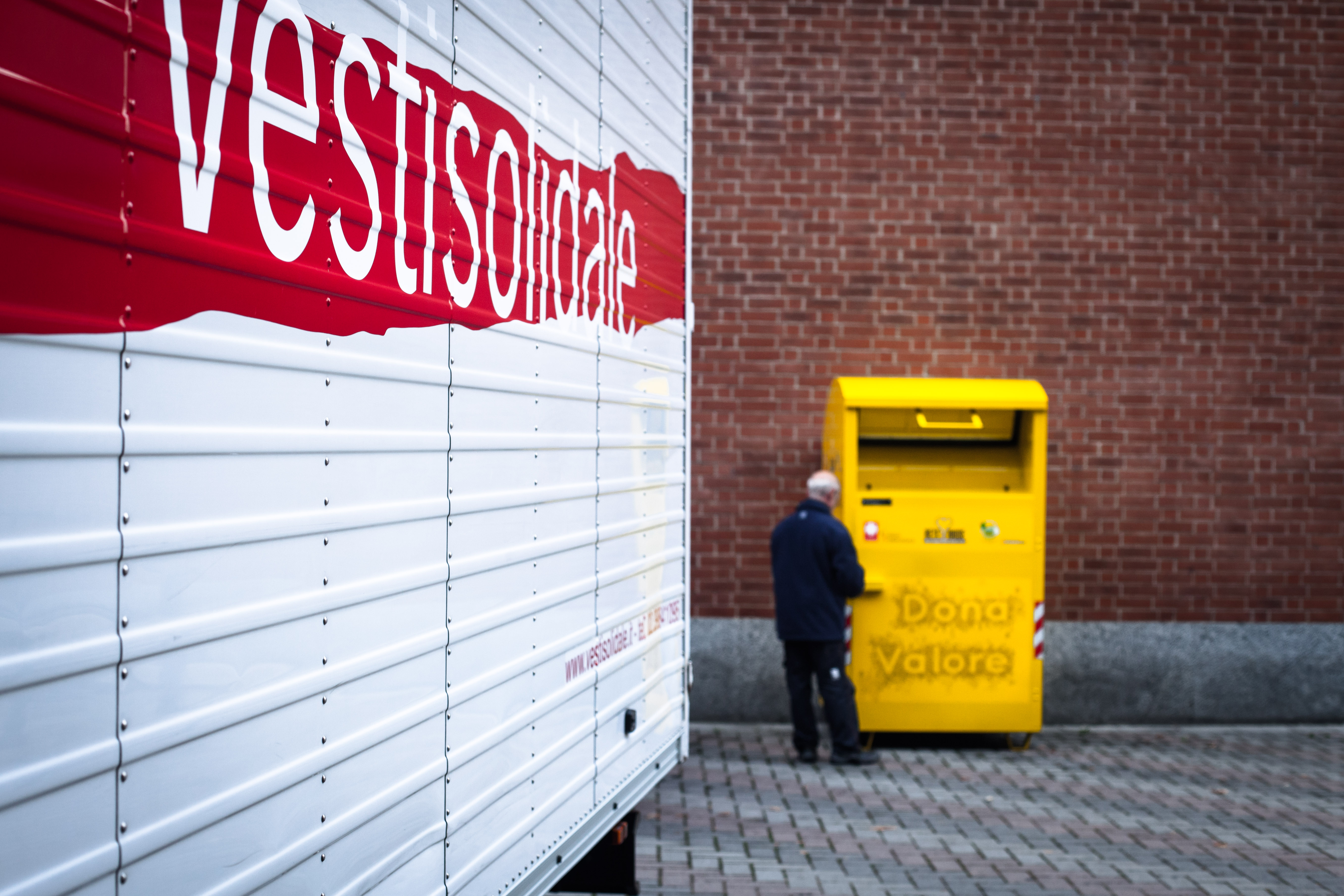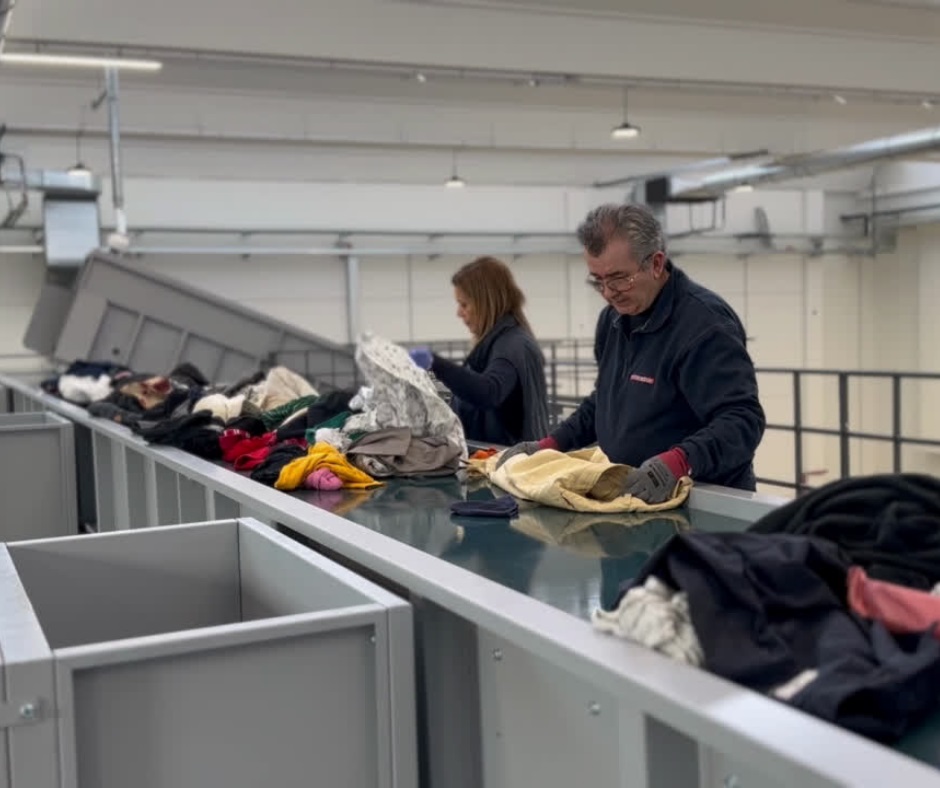
Vesti Solidale, a social cooperative founded in 1998, focuses on the creation of employment opportunities for vulnerable people and environmental sustainability. The cooperative's mission is to provide fair working conditions for people who face constant challenges while making a positive impact in the field of waste management, particularly in the textile sector.
The cooperative counts 153 workers and 38 members. The cooperative operates in two key areas: special waste and municipal waste management. For special waste, Vesti Solidale works with companies, including multinationals, to offer a complete waste management service. This includes collection, transport, waste management at its own or third-party facilities and the provision of consultancy services, ensuring environmental compliance throughout the process. As far as municipal waste is concerned, Vesti Solidale collaborates with local authorities for the collection and management of used clothing through containers. Vesti Solidale operates three plants in the province of Milan, including the largest textile waste management plant in northern Italy, which will open in March 2023. This plant can process up to 20,000 tonnes of waste, marking a significant achievement for a social enterprise in a sector traditionally dominated by private companies.
In 2012, Vesti Solidale joined forces with other social cooperatives to create Rete Riuse, a network dedicated to strengthening the position of social enterprises in the waste management sector. This network, which includes cooperatives from all over northern Italy, manages eight textile waste plants and works in close cooperation with other social economy organisations such as Caritas Ambrosiana.

One of the cooperative's most exciting projects is the Taivè Social Tailoring, a tailoring workshop that employs women who have suffered violence or other forms of vulnerability. Thanks to this initiative, these women acquire valuable skills and a path to a dignified life. Not surprisingly, the cooperative was recently certified for gender equality. Moreover, since 2014, the cooperative has launched a sustainable fashion project called SHARE, consisting of shops offering high-quality second-hand clothing in the cities of Milan and Varese.
To face challenges such as falling prices in the textile sector due to fast fashion, and a complex regulatory environment, Vesti Solidale actively participates in European networks to exchange knowledge and improve its practices. One of these is the TESS network, where Vesti Solidale, together with similar structures in other European countries, works on issues such as cross-border transport and certification.
For Vesti Solidale, the cooperative model is the key to its mission. "Social cooperation means sharing responsibility and striving to do the best for others. An approach that requires a daily commitment but gives deep satisfaction," explains Giuseppe Finocchiaro, Technical Sales Manager of Vesti Solidale.
On 28 October, Vesti Solidale, together with 6 other social cooperatives, added RETESSILE - of which it will have the honour of chairmanship - the new network of type B social cooperatives specialising in the collection and management of textile waste. This act, in an international context where textile management is one of the main factors to be solved in order to achieve a successful environmental transition, reinforces the assumption that through support and sharing, systemic changes are imminent.









